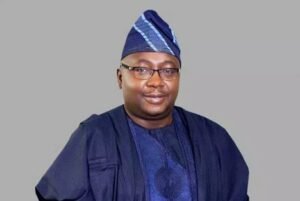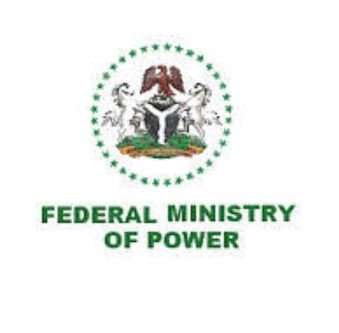The Federal Ministry of Power in Nigeria is the government agency responsible for overseeing the country’s electricity supply. This ministry works with power companies to ensure that electricity is produced, transmitted, and distributed efficiently to homes and businesses across the country. Also, they promote renewable energy sources and work to improve the overall reliability of Nigeria’s power grid.
READ ALSO: List Of Inspector Generals Of Police Till Date
Complete List Of Ministers Of Power In Nigeria
No | Name | Term | Party |
|---|---|---|---|
1 | Ositadimma Chinedu Nebo | 2013-20215 | PDP |
2 | Babatunde Fashola | 2015 - 2019 | APC |
3 | Sale Mamman | 2019 - 2023 | APC |
4 | Abubakar D. Aliyu | 2023-2023 | APC |
5 | Adebayo Adelabu | 2023 - Present | APC |
READ ALSO: Complete List Of Ministers Of Transportation In Nigeria
Departments In The Ministry Of Power In Nigeria
- Energy Resources Development
- Distribution System
- Transmission System
- Renewable and Rural Power Access
- Finance and Accounts
- Human Resources Management
- Planning, Research and Statistics
- Procurement
- Reforms Coordination
- General Services
- Legal Services
- Internal Audit
- Information and Press
READ ALSO: List Of Ministers Of Industry, Trade And Investment In Nigeria
Agencies Under The Ministry Of Power In Nigeria
Here is the list of all the agencies under the Ministry of Power in Nigeria:
- Nigerian Electricity Regulatory Commission (NERC)
- Nigerian Electricity Management Services Agency (NEMSA)
- Nigerian Electricity Liability Management Company (NELMCO)
- National Power Training Institute (NAPTIN)
- Nigerian Bulk Electricity Trading PLC (NBET)
- Rural Electrification Agency (REA)
- Transmission Company of Nigeria (TCN)
READ ALSO: List Of Ministers Of Finance And Coordinating Minister Of Economy In Nigeria
Who Is The New Minister Of Power In Nigeria?

Adebayo Adelabu is Nigeria’s new Minister of Power. He took office on August 21, 2023. Adelabu is a man with a strong background in finance and banking, and he’s no stranger to leadership roles.
Before he became the Minister of Power, he served as the Deputy Governor of Operations at the Central Bank of Nigeria (CBN) from 2014 to 2018. Born on September 28, 1970, in Ibadan, Oyo State, Adelabu grew up in a family with a rich history.
His grandfather, Adegoke Adelabu, was a well-known politician in Nigeria. Adebayo Adelabu attended Lagelu Grammar School in Ibadan and went on to earn a first-class degree in Accounting from Obafemi Awolowo University, Ile-Ife.
He also studied at top business schools like Harvard and Stanford. Adelabu began his career at PriceWaterhouse (now known as PwC), a leading firm of accountants and management consultants.
There, he worked on various important projects that involved auditing and providing consultancy for banks and financial institutions. His expertise grew during his time at PwC, and it wasn’t long before he moved on to a bigger role.
He worked at First Atlantic Bank, Standard Chartered Bank, and First Bank of Nigeria (FBN), where he became the Chief Financial Officer (CFO) at the age of 39. Throughout his career, Adelabu has been part of several boards and committees that focus on finance and the economy.
He served as the Chairman of the Board of Directors of the Nigeria Inter-Bank Settlement Systems (NIBBS) and held leadership roles in organizations like the Nigeria Security Printing and Minting Company (NSPMC) and the Assets Management Corporation of Nigeria (AMCON).
In addition to his career in finance, Adelabu has always been interested in politics. He ran for governor of Oyo State in 2019 under the All Progressives Congress (APC) but lost the election.
However, he later joined the Accord Party and is still actively involved in politics in Oyo State. On July 27, 2023, President Bola Ahmed Tinubu included Adelabu in his list of ministerial nominees, and by August 16, 2023, Adelabu was officially appointed as the Minister of Power.
This role puts him in charge of Nigeria’s power sector. As the Minister of Power, Adelabu is expected to focus on solving the country’s power challenges. Nigeria has struggled with providing stable electricity to its citizens, and many are looking to him for solutions.

